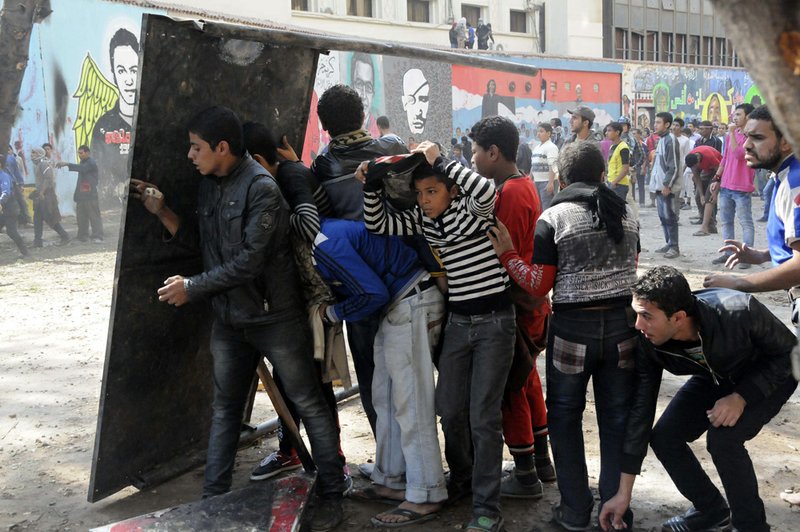CAIRO — Opponents and supporters of Mohammed Morsi clashed across Egypt on Friday, the day after the president granted himself sweeping new powers that critics fear can allow him to be a virtual dictator. At least 15 were reported injured.
In a sign of deepening polarization, state TV reported, protesters burned offices of the political arm of Morsi’s Muslim Brotherhood group on several cities on the Suez Canal east of Cairo and in the Mediterranean port city of Alexandria, while Islamists engaged with fistfights with Morsi opponents in southern Egypt.
Tens of thousands of pro-democracy activists meanwhile converged on Cairo’s Tahrir Square, angered at the decisions by Morsi.
The decrees include exempting himself from judicial review, as well as a panel writing the new constitution and the upper house of parliament, and the power to enact any other measure he deemed necessary to deal with a “threat” to Egypt’s “revolution.”
Morsi’s powers are supposed to be temporary — until a new constitution and new parliamentary elections take place — and feed on the belief among the public that judicial officials appointed under ousted President Hosni Mubarak are blocking the overhaul of state institutions.
The president’s supporters cast the decrees as the next logical step to consolidate the gains of the 2011 uprising that overthrew Mubarak, and the only way to break through the political deadlock preventing the adoption of a new constitution. Courts dissolved both parliament and an earlier constitutional assembly earlier this year, and were weighing cases on whether to dissolve it again.
But many veteran activists who organized that uprising say Morsi’s decree puts him in the same category as Mubarak, who argued his autocratic powers were necessary only to shepherd Egypt to a new democratic future.
Mohamed ElBaradei, former head of the U.N.’s nuclear agency, called Morsi a “new pharaoh.”
The president’s one-time ally, the April 6 movement, warned that the polarization could bring a “civil war.” One of Morsi’s aides, Coptic Christian thinker Samer Marqous, resigned to protest the “undemocratic” decree.
Read tomorrow's Arkansas Democrat-Gazette for full details.
